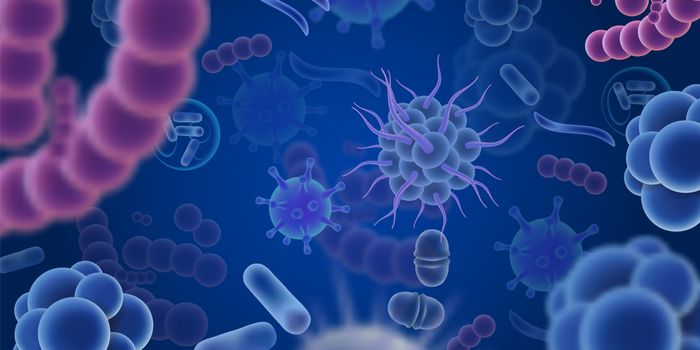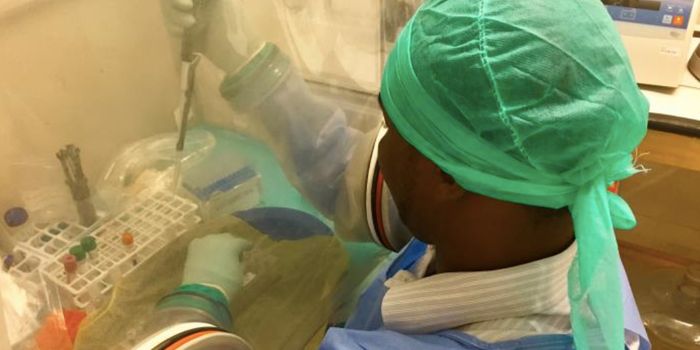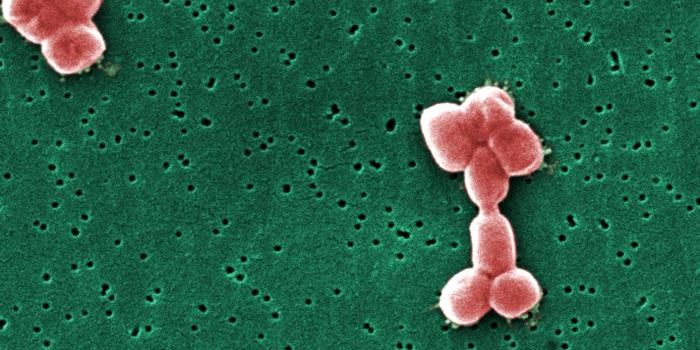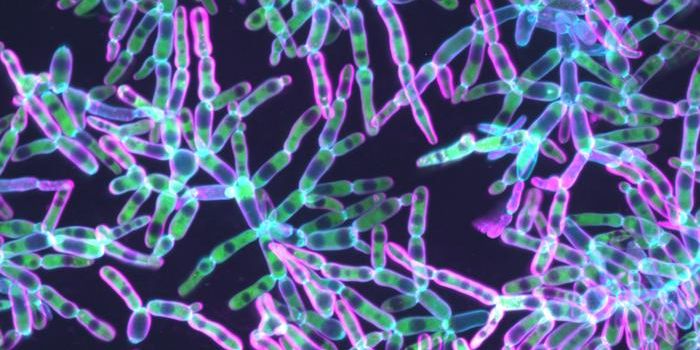Gas-Generating Microbes Highlight the Diet - Microbiome Link
Researchers are learning more about how different species of bacteria in the human gut microbiome play a role in metabolism. Reporting in The ISME Journal, scientists have focused on how a sugar called sulfoquinovose, which contains sulfur, is broken down by gut microbes. Sulfoquinovose is found in green vegetables like spinach and lettuce. This study has shown that gut bacteria can cooperate to utilize the sulfosugar, producing hydrogen sulfide in the process. Hydrogen sulfide is well known for its rotten smell, but what may not be as well known is that at low concentrations, this gas can have an anti-inflammatory impact. However, higher levels have been linked to the development of diseases including cancer.
A single food, even one as simple as spinach, puts hundreds of different chemical compounds into our body when we consume it. Gut microbes eventually metabolize many of these compounds, and the interplay of the food we consume, the bacteria we carry, and how they help us digest food, all have a significant influence on our health.
"So far, however, the metabolic capabilities of many of these microorganisms in the microbiome are still unknown. That means we don't know what substances they feed on and how they process them," noted lead study author Buck Hanson of the Center for Microbiology and Environmental Systems Science (CMESS) at the University of Vienna. "By exploring the microbial metabolism of the sulfosugar sulfoquinovose in the gut for the first time, we have shed some light into this black box,"
The more we know about which specific types of bacteria affect metabolism and health, the easier it will be to find out how to maintain a healthy microbiome.
This work used stool samples from human volunteers to learn more about sulfosugar metabolism by gut microbes.
"We have now been able to show that, unlike glucose, for example, which feeds a large number of microorganisms in the gut, sulfoquinovose stimulates the growth of very specific key organisms in the gut microbiome," said study co-leader Professor David Schleheck of the University of Konstanz.
One of those key organisms is Eubacterium rectale, it's among the ten most common microbes found in the guts of healthy people.
"The E. rectale bacteria ferment sulfoquinovose via a metabolic pathway that we have only recently deciphered, producing, among other things, a sulfur compound, dihydroxypropane sulfonate or DHPS for short, which in turn serves as an energy source for other intestinal bacteria such as Bilophila wadsworthia. Bilophila wadsworthia ultimately produces hydrogen sulfide from DHPS via a metabolic pathway that was also only recently discovered," Schleheck explained.
Hydrogen sulfide gas appears to reduce inflammation in the intestinal mucosa, but when gut microbes generate a lot of it, it may cause chronic inflammation. "According to current knowledge, it can have a positive but also a negative effect on intestinal health," said study co-leader Alexander Loy, head of the research group at the University of Vienna.
It was thought that diets rich in meat and fat were sources of hydrogen sulfide, but now we know that sulfoquinovose can also come from green veggies and contribute to the production of this gas in the gut.
"We have shown that we can use sulfoquinovose to promote the growth of very specific gut bacteria that are an important component of our gut microbiome. We now also know that these bacteria in turn produce the contradictory hydrogen sulfide from it," said Loy.
The researchers want to know more about the potential positive impact of the plant-based sulfosugar. "It is also possible that sulfoquinovose could be used as a so-called prebiotic," noted Schleheck.
Sources: AAAS/Eurekalert! via University of Konstanz, ISME Journal









